


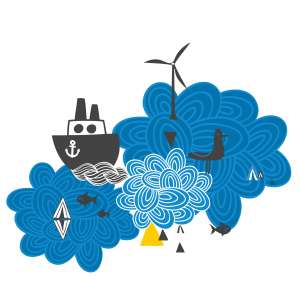
Don’t get stuck on what EBA is – learn how to do it! Take the chance to answer the million-dollar question “What is EBA?”. In this workshop, you have the chance to move on to “How to do EBA!”. We present good examples and work on application of EBA in MSP, including scientific evaluations of EBA implementation – examples from the Baltic Sea, the Bay of Biscay and beyond.
Share your views, and join us in strengthening a common view of the Ecosystem Based Approach in MSP. Ecosystem Based Approach is great!
Expert discussion will be followed by an interactive discussion with the audience.

Jan is leading the work on impact assessments including cumulative assessment with Symphony and sustainability appraisal in Swedish national MSP. He has contributed in the development of a Baltic Ecosystem-based MSP approach in many years, including work in projects like Baltic Scope and Pan Baltic Scope. Jan is representing Sweden in the HELCOM/VASAB MSP working group.

Aron Westholm is a PhD candidate in Public Law, with a focus on Ocean Governance Law. His research primarily concerns the relation between administrative systems and the natural environment. Aron is one of the hosts of the Ocean Governance Podcast.
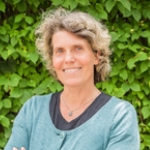
MSP and policy consultant. She has been working on marine topics like integration of biodiversity protection into other policy fields or combating marine litter and is conducting trainings on integrated MSP approaches in different sea regions.

He received his M.Sc. and Ph.D. degrees in geography from the University of Helsinki, where he currently also acts as an Adjunct Professor of geoinformatics. His research interests include cartography, geovisualisation, handling of uncertainty, analysis of large spatio-temporal datasets and interaction in spatial decision support tools.
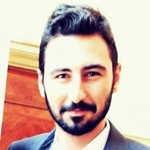
Kemal Pınarbaşı is a PhD researcher at AZTI Tecnalia in Spain. His research focuses on decision support tools and their application for marine spatial planning and human activities such as fishery, renewable energy and aquaculture.
This workshop shares insights on stakeholder involvement in coastal and marine spatial planning from initiatives in the Baltic Sea and beyond. According to the global IOC-UNESCO guidelines, the EU MSP directive and national legislation, marine users and the public should at least be consulted. But what does this imply? What is in it for them? Can they be involved more intensively? How and for what purposes? How did we work towards local actors and what have we learned?
Welcome to share your knowledge and discuss with us!
Presentations will be followed by an interactive discussion with the audience to share experiences and complement our recommendations.

Long years of experience in MSP with particular focus on stakeholder values. Investigating the resilience of North Sea fishing communities and climate change impacts on cultural ecosystem services. Also assisting the development of MSP in Namibia in the GIZ MARISMA project.

A spatial planner with broad experience from all levels of planning in Sweden. International and national level through MSP at the Swedish Authority for Marine and Water Management (SwAM) until mid-August, regional level at county administrative board of Gävleborg and local level at Älvkarleby and Gävle municipalities. She was SwAM’s representative in the Finland – Åland – Sweden Case in the Pan Baltic Scope project. Now she is deep diving into offshore windpower.
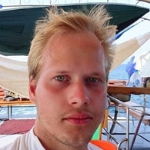
The lead of the Activity Finland – Åland – Sweden Case in the Pan Baltic Scope project. He is also the coordinator of the MSP process in the autonomous region of Åland. He has an MSc in Marine Biology and the main research focus on anthropogenic stressors on marine ecosystems, as well as local-level knowledge in MSP processes.
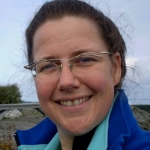
Environmental and social scientist with long experience in research and development of coastal and marine governance, participation and conflict management. Leading the Pan Baltic Scope work package on Land-Sea Interactions. Co-chairing the ICES Working Group on Marine Planning and Coastal Zone Management (WGMPCZM).
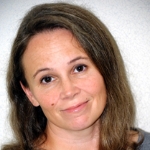
An environmental scientist with 18 years of experience in natural resource conflicts and human-environment interactions. She has led various interdisciplinary research and development projects with the aim to improve collaborative governance.

A biologist and marine planner working as consultant for the MSPglobal Initiative, the project designed to implement the priority actions of the “Joint Roadmap to accelerate MSP processes worldwide” adopted by IOC-UNESCO and DG MARE. She has worked with stakeholder engagement and capacity building in MSP and Blue Economy within other projects (SPINCAM, GEF LME:LEARN and MUSES) and is the Latin American representative of the MSPglobal Group of Experts.
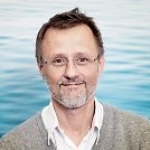
Mr Andersson has 20 years experiences from working with strategic development planning, in different parts of the world, with focus on spatial planning in transboundary context. Through his professional carrier, Mr. Andersson has gained extensive experiences from using adaptive planning methods including stakeholder involvement.
It is important to assess quality of the MSP process and to know the results of the plans in order to improve the processes and effectiveness of the plans. But how can we monitor and evaluate MSP, while acknowledging the reported challenges in knowing the impacts of broad-scale spatial plans and policies? The session presents how these challenges have been approached in different countries and what did we learn in the Pan Baltic Scope project. The session will discuss possibilities and limitations of indicator-based monitoring and how to collect the needed input from experts and stakeholders on how MSP influences maritime sectors, marine environment and the society. We will share practical experiences and suggestions for monitoring and evaluating MSP in Latvia, Poland, Belgium, Germany and Mecklenburg-Vorpommern.
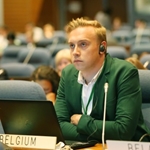
After the adoption of the first Belgian Maritime Spatial Plan, Jesse joined the federal government of Belgium to successfully coordinate the revision of this plan. This led to the new MSP 2020-2026. Besides his work on MSP, he also works on the environmental aspects of several offshore activities, including windfarms and has attended several international negotiations as the Belgian delegate on ocean matters.

An international lawyer by training, Dr. Trümpler has worked for the BSH since 2007. The Spatial Planning Unit develops the maritime spatial plan for the German exclusive economic zone and the wind energy plan for German offshore sites, the site development plan.
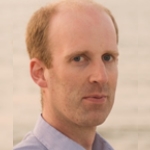
Holger is educated in spatial planning with specialisation on coastal and marine management. He has worked as a scientist on MSP for 11 years and is now responsible for MSP in the territorial waters of Mecklenburg-Vorpommern, Germany.
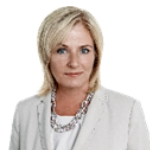
She has been dealing with the national MSP for 5 years since it was initiated. Now plan is adopted and entered into implementation phase. National representative to the Spatial Planning and Development Committee of the Baltic Sea Region (VASAB) dealing with transboundary cooperation not only for marine but also terrestrial planning. Interested in transboundary cooperation for environmental data mapping and application in MSP as well as SEIA.
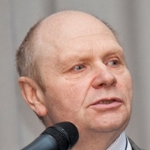
His research focuses on supranational spatial planning and development, maritime spatial development, Baltic Sea Region integration. Recently the first international applied-oriented monograph on maritime spatial planning (Maritime Spatial Planning past, present, future) has been published by Palgrave under his (and Kira Gee) leadership. He has been responsible for drafting Polish maritime spatial plan handled this year to the government.

He has over 20 years’ experience in research on marine governance and planning. The projects have addressed topics such as coastal management, environmental regulation of marine aquaculture, interactions between environment and fisheries, EU marine protection policies and, most recently, MSP. As a social scientist, he focuses especially on the practices of decision making and participation. In the projects Baltic SCOPE and Pan Baltic Scope, he has focused on developing methods for monitoring and evaluating marine spatial planning.

Pan Baltic Scope brings together national authorities and regional organizations towards coherent national maritime planning in the Baltic Sea region and enhances the lasting macro-regional mechanisms for cross-border MSP cooperation.
CONTACTS
PROJECT LEADER AND COORDINATOR
Ingela Isaksson
Swedish Agency for Marine and Water Management
E-MAIL ADDRESS:
ingela.isaksson@havochvatten.se
MOBILE PHONE NUMBER:
0046 (0)703 662 529
CONTACTS
COMMUNICATION MANAGER
Liene Strazdina
VASAB Secretariat
E-MAIL ADDRESS:
liene.strazdina@vasab.org
MOBILE PHONE NUMBER:
+371 29 703 572